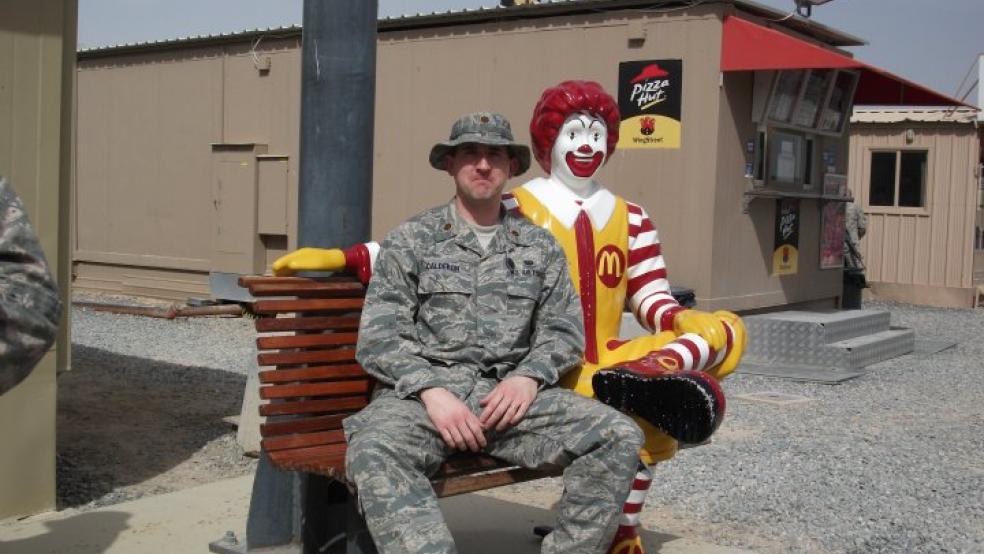Hundreds of fast-food joints on U.S. military bases may close starting next year, but not because of any push for healthier dining options.
New regulations requiring increased wages and benefits for federal contract workers on military bases could result in job losses and fewer food choices for service members and their families, according to 40 lawmakers in Washington who signed a letter last week calling on the Labor Department to exempt some military exchanges, which include on-base fast food establishments, from the new rules.
Related: Pentagon Strikes Back at F-35 Contractor by Withholding Payments
“Vital services offered on military installations should not be placed in limbo because of a unilateral decision implemented by the Administration,” Rep. Joe Wilson (R-SC), chairman of the House Armed Services Subcommittee on Military Personnel, said in a statement. “This government mandate threatens to destroy jobs at a time when American workers need them most.”
The compensation boost for workers would come from two sources. One is an update to the Service Contract Act’s health and welfare rate, which requires that most federal contract workers receive wages and benefits similar to those prevailing in the locality. That means significant raises for federal contract workers on bases in states such as Washington, which has the highest minimum wage, at $9.32 an hour.
The other source is an across-the-board increase in the minimum wage for federal contract workers starting in 2015. That stems from an executive order signed by President Obama in February that will boost the hourly pay rate to $10.10 for all new and renewed contracts. The rate will be adjusted annually to keep pace with inflation.
The federally mandated minimum wage for all workers remains at $7.25 an hour. The White House and congressional Democrats are pushing to increase that to $10.10 an hour, a 40 percent increase.
McDonald’s has already shuttered restaurants on three bases, while the Navy and Marine Corps estimate as many as 390 fast-food establishments could close as a result of the wage increases, resulting in the loss of 5,750 jobs, according to documents cited by Military Times. Family members of military personnel comprise a significant portion of military exchange employees.
Related: Unemployment Insurance Bill Hits Political Snags
“The specter of mass layoffs being raised is an illusion,” said George Faraday, policy for director Change to Win, a group that advocates for workers’ rights. “If they care about the welfare of military spouses they should care about whether military spouses are making a living wage.”
He noted that in the Washington, D.C. area, a military exchange worker currently earning $8.50 an hour would make $13.91 an hour in some combination of cash and benefits under a federal contract entered into after Jan. 1, 2015.
Revenue from military exchanges fund what are known as morality, welfare and recreation programs. Bridging the wage gap by raising prices isn’t an option since most federal contracts stipulate that on-base establishments can’t charge more for services offered within a certain radius of military installations, according to the congressional letter, signed by Rep. John Kline (R-MN), head of the House Education and Workforce Committee.
The Army and Air Force have a contract and compensation structure that wouldn’t be affected in the same way as the Navy and Marine Corps.
Top Reads from The Fiscal Times:
- After a Dramatic Comeback, GM Crisis Takes the Company Down
- $6 Billion Goes Missing at State Department
- Hospitals Plot the End of Insurance Companies





